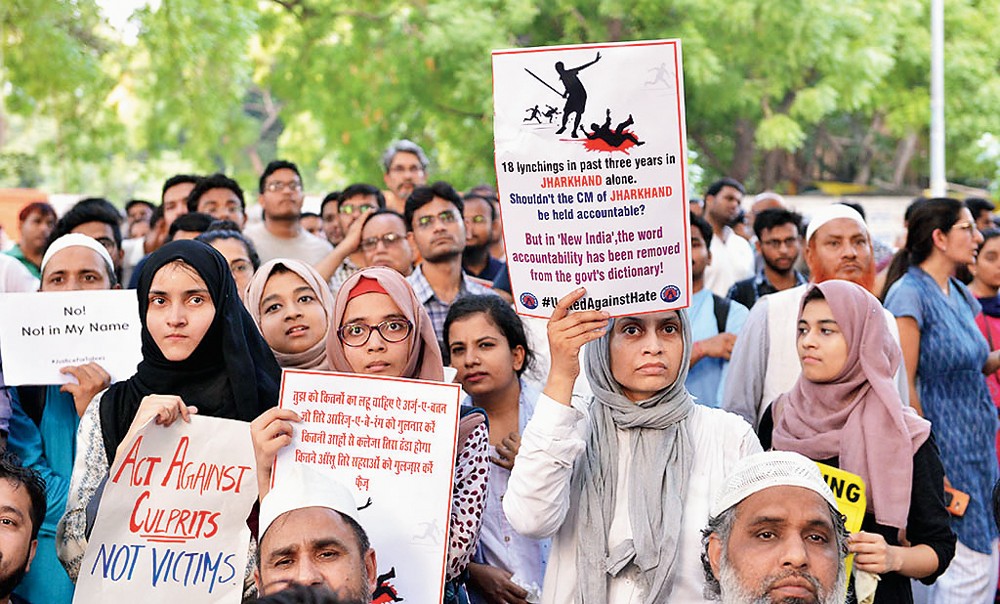Pakistan: ‘Lynchistan’ in the Making

On February 11, a suspect accused of blasphemy was brutally lynched to death in Pakistan’s Punjab province’s Nankana Sahib district.[1] Although lynching cases are not uncommon in Pakistan, this particular incident was especially heinous, as the suspect was forcibly taken out from his jail cell and killed outside the prison by a crowd of hundreds, some of whom were children. The accused, identified as Waris, had been in police custody for allegedly desecrating pages of the holy Quran.
What is particularly concerning is the fact that many individuals on social media platforms in Pakistan have openly defended this gruesome murder and even shared the video of the lynching to instil fear amongst religious minorities in the country. This tragic event serves as yet another example of the growing state-sponsored Islamic radicalization in Pakistan. Furthermore, it is important to note that once again, the government authorities failed to prevent a lynching incident that was triggered by blasphemy allegations.
The Human Rights Commission of Pakistan (HRCP) has commented on the recent incident, stating in a tweet that “this is yet another instance of the state’s failure to prevent mob ‘justice’.”[2] Last year, on February 12, a mentally unstable man was mercilessly stoned to death in the Khanewal district of Punjab.[3] He had been accused of desecrating the Holy Quran. Despite being in the custody of law enforcement personnel, a crowd of people seized the accused and lynched him to death, marking a disturbing trend of extrajudicial violence.
This lynching took place mere weeks after the infamous case of a brutal murder of a Sri Lankan factory manager in Sialkot, who was accused of blasphemy for allegedly removing a poster featuring Quranic verses during renovations.[4] Although over 100 arrests were made and six of the main culprits were given death sentences, the blasphemy related mob violence is intensifying in Pakistan.[5] More importantly, political parties and law enforcement agencies are taking half-hearted measures to the menace of growing religious extremism in the country.[6] Several human rights activists in Pakistan have linked recurring incidents of blasphemy killings to the following reasons: growing trend of religious fervour in the country, increasing influence of far-right Islamist groups facilitated by the state, and the lack of accountability for perpetrators who believe that the existence of blasphemy laws is a sufficient justification for lynching people.[7]
The list of victims who have been killed on mere suspicion of committing blasphemy continues to grow in Pakistan, regardless of whether they are Muslim or non-Muslim.[8] It appears that there is no end in sight to this troubling trend of religiously motivated violence and vigilantism. The presence of a fanatical mindset is not limited to the uneducated class in Pakistan, but rather it is ubiquitous and can even be found in educational institutions, as evidenced by Mashal Khan’s tragic lynching case. Khan, a student at the Abdul Wali Khan University in Khyber Pakhtunkhwa, was killed by fellow students on campus in April of 2017 on false blasphemy allegations.[9] The incident highlighted the disturbing reality that even those who are highly educated in Pakistan are falling prey to extremist religious beliefs and killing innocent people on false charges.[10]
In its recent report ‘A Breach of Faith: Freedom of Religion or Belief in 2021-22’, the HRCP suggests that to prevent the misuse of blasphemy laws to settle personal scores, it is important to raise the standard of judicial evidence required to prove such accusations.[11] This is especially important given the current prevalence of blasphemy allegations being used as a means of revenge against religious minorities in Pakistan.[12] The report quotes the police data for 2021, which indicates that a total of 585 cases were filed under the blasphemy laws that year, with the majority originating from Punjab. Notably, at least 16 of these cases were targeted towards members of the Ahmadiyya community.[13]
It is noteworthy that the (un)holy nexus between far-right Islamist groups and violence fuelled on accusations of blasphemy has deepened in the last one decade. In October 2021, violent clashes between law enforcement personnel and thousands of workers from the now-proscribed political party Tehreek-i-Labbaik Pakistan (TLP) resulted in the death of at least four police officers and left over 250 people injured in Punjab’s Gujranwala district.[14] Pakistan’s powerful military establishment propped up the TLP as a political party in 2015 to weaken former prime minister Nawaz Sharif’s Pakistan Muslim League (N) in Punjab to improve winning chances of Imran Khan’s Pakistan Tehreek-i-Insaf in the 2018 general elections.[15]
Although the military was successful in removing Sharif’s party from power, it inadvertently bolstered the TLP’s ability to garner more public support for their illegal activities concerning blasphemy. Consequently, religious minorities in Pakistan are subjected to daily persecution at the hands of right-wing Islamists groups. In a disturbing incident, an eight-year-old Hindu boy from Rahim Yar Khan in Punjab was charged with blasphemy in August 2021, marking him as the ‘youngest person’ ever to be accused under such laws in Pakistan.[16] [17] These incidents suggest that Pakistan is quickly transforming into ‘lynchistan’.
[1] https://www.aljazeera.com/news/2023/2/11/in-pakistan-angry-mob-lynches-man-accused-of-blasphemy
[2] https://twitter.com/HRCP87/status/1624414056135393281
[3] https://www.bbc.com/news/world-asia-60368498
[4] https://www.dawn.com/news/1661728
[5] https://www.theguardian.com/world/2021/dec/03/pakistan-sri-lankan-man-priyantha-diyawadana-tortured-killed-alleged-blasphemy-sialkot
[6] https://www.reuters.com/article/pakistan-blasphemy-idINKBN16L2A5
[7] https://www.dw.com/en/pakistan-activists-sound-alarm-over-hate-crimes-blasphemy-claims/a-63396489
[8] https://crss.pk/blasphemy-cases-in-pakistan-1947-2021/
[9] https://tribune.com.pk/story/1628444/10-months-timeline-brutal-lynching-mashal-khan
[10] https://www.rferl.org/a/student-lynching-for-blasphemy-still-haunts-pakistani-university/31203447.html
[11] https://hrcp-web.org/hrcpweb/wp-content/uploads/2020/09/2023-A-breach-of-faith-freedom-of-religion-or-belief-in-2021-22.pdf
[12] https://www.bbc.com/news/world-asia-48204815
[13] https://hrcp-web.org/hrcpweb/wp-content/uploads/2020/09/2022-State-of- human-rights-in-2021.pdf
[14] https://www.aljazeera.com/news/2021/10/27/pakistani-police-killed-at-tlp-protest
[15] https://tribune.com.pk/story/2330195/how-tlp-came-into-being
[16] https://www.amnesty.org/en/latest/news/2021/08/pakistan-drop-ludicrous-blasphemy-charges-against-eight-year-old-boy/[17]https://www.theguardian.com/global-development/2021/aug/09/eight-year-old-becomes-youngest-person-charged-with-blasphemy-in-pakistan






